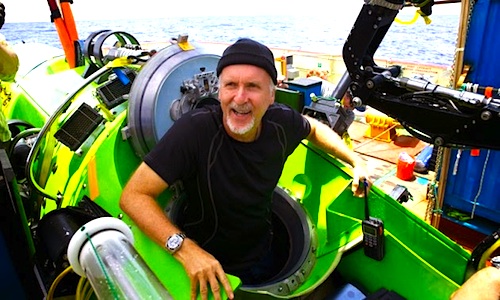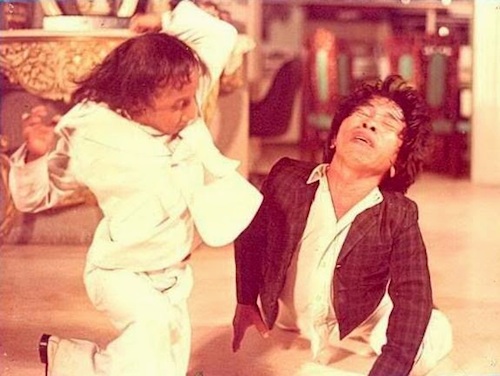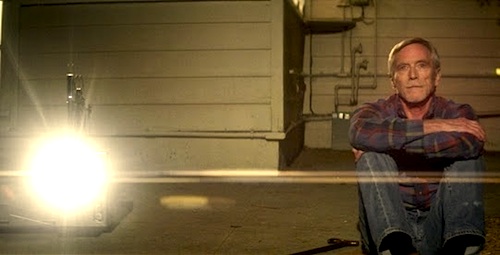By Joe Bendel. The Deepsea challenger submersible is a marvel of engineering. It can withstand the pressure diving to the lower depths of the Mariana Trench, while still containing James Cameron’s ego. The Oscar winning filmmaker follows his passion to the remotest corner of the ocean floor in John Bruno, Ray Quint, and the late Andrew Wight’s Deepsea Challenge 3D, which opens this Friday nationwide.
To avoid confusion, the film is title Deepsea Challenge 3D, the expedition is the “Deepsea Challenge” and the craft is named “Deepsea Challenger.” Clearly, all the inventiveness was saved for the engineering. To a large extent, all three were made possible by Titanic and Avatar. Cameron was no mere figurehead attached to the project. He cut checks and pilots the Deepsea Challenger during its historic dive, which is not so crazy given his short stature and long enthusiasm. However, he comes across as quite the demanding taskmaster during the extensive development process. Tragically, the entire project is temporarily called into question when Wight and underwater cameraman Mike duGray perish in a helicopter accident.
You cannot say Cameron never put his money or the rest of his body where his mouth is. In fact, one gets the sense his wife, former model and actress Suzy Amis would just as soon see him collect vintage cars, like Leno. Still, Cameron’s evangelical zeal for deep sea exploration is admirable. In fact, the best sequences in Challenge 3D revolve around the research vessel Trieste’s previous voyage to the depths of the Mariana in 1953. Subsequently overshadowed by the Moon landing and Jacques Cousteau, the Trieste fired young Cameron’s imagination, directly inspiring The Abyss.

Strictly speaking, the 3D adds very little to the viewing experience, even when the mission is underway. On the other hand, it is so unlikely most viewers will ever find themselves exploring the Mariana Trench, it makes sense to replicate the experience as fully as possible, much like the Chauvet Cave in Werner Herzog’s Cave of Forgotten Dreams. Of course, it also necessarily comes with 3D pricing, which many audience members may not believe is warranted for a film produced very much in the style of a National Geographic television special.
Regardless, Challenge 3D should be considerably informative for most layperson viewers and they way it captures the team’s spirit of innovation and derring-do is certainly appealing. It just lacks the “wow” moments Cameron fans might expect. Recommended for aquatic-fascinated audiences of all ages, Deepsea Challenge 3D opens this Friday (8/8) nationwide.
LFM GRADE: B
Posted on August 4th, 2014 at 10:02pm.



